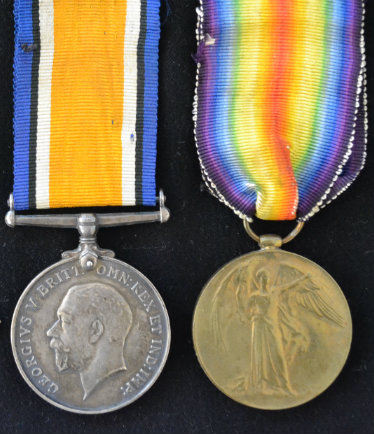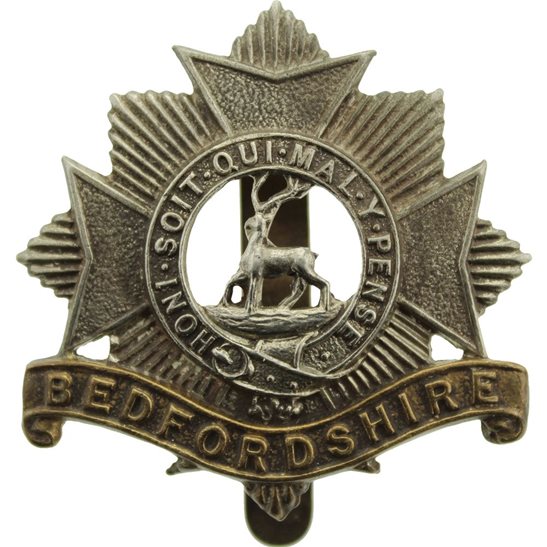Personal Details
Born: 19 December 1880.
Family: The third child of Thomas and Sarah Sumner of Steele Road, Whitchurch, Shropshire. He married Edith Cox in 1903 and was father to George, Doris and Wallace.
Civilian Occupation: He was a farm labourer.
Residence: He lived at 13 Sherrymill Hill, Whitchurch.
Died: He died in September 1959 aged 77.
Military Details
Regiment: Bedfordshire Regiment (previously King’s Shropshire Light Infantry and South Wales Borderers)
Rank: Private
Service Number: 43674 (previously 25099 and 40559)
Date of Enlistment: 26 July 1916
Date of Discharge: 8 March 1919
Reason for Discharge: Demobilisation
Richard was awarded the Campaign Medals (British War Medal, and Victory Medal).

The British War Medal (also known as 'Squeak') was a silver or bronze medal awarded to officers and men of the British and Imperial Forces who either entered a theatre of war or entered service overseas between 5th August 1914 and 11th November 1918 inclusive. This was later extended to services in Russia, Siberia and some other areas in 1919 and 1920. Approximately 6.5 million British War Medals were issued. Approximately 6.4 million of these were the silver versions of this medal. Around 110,000 of a bronze version were issued mainly to Chinese, Maltese and Indian Labour Corps. The front (obv or obverse) of the medal depicts the head of George V. The recipient's service number, rank, name and unit was impressed on the rim.
The Allied Victory Medal (also known as 'Wilfred') was issued by each of the allies. It was decided that each of the allies should each issue their own bronze victory medal with a similar design, similar equivalent wording and identical ribbon. The British medal was designed by W. McMillan. The front depicts a winged classical figure representing victory. Approximately 5.7 million victory medals were issued. Interestingly, eligibility for this medal was more restrictive and not everyone who received the British War Medal ('Squeak') also received the Victory Medal ('Wilfred'). However, in general, all recipients of 'Wilfred' also received 'Squeak' and all recipients of The 1914 Star or The 1914/1915 Star (also known as 'Pip') also received both 'Squeak' and 'Wilfred'. The recipient's service number, rank, name and unit was impressed on the rim.

